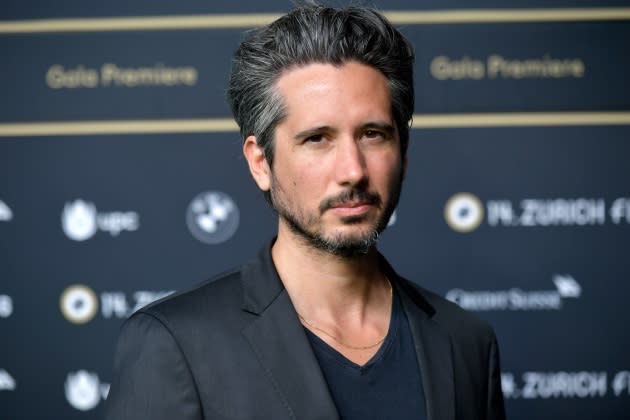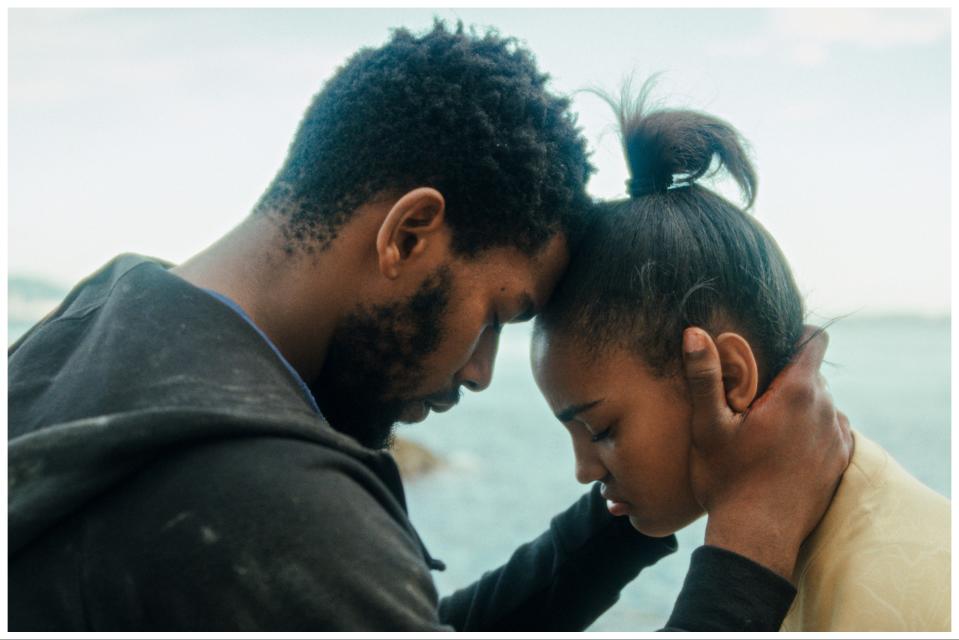Jean-Bernard Marlin Talks Mixing Fantasy & Reality in Cannes Title ‘Salem’ Shot In Tough Marseille Neighborhood + First Clip
- Oops!Something went wrong.Please try again later.

EXCLUSIVE: French director Jean-Bernard Marlin made waves in Cannes Critics’ Week in 2018 with Marseille-set feature debut Shéhérazade about the relationship between a young prostitute and an underage ex-convict who becomes her pimp.
The film went on to win best first film alongside most promising actress and actor for Kenza Fortas and Dylan Robert at the 2019 edition of France’s César awards.
More from Deadline
Marlin returns to Cannes this year with his second feature Salem which world premieres in Un Certain Regard.
Like Shéhérazade, the feature captures the reality of Marseille’s notoriously crime and poverty-ridden northern quarters with a documentary approach but differs in that Marlin has added a layer of fantasy to the tale.
“I don’t invent anything in what I am showing, but at the same time, this film is a work of the imagination. It’s an allegory, with dreamlike and fantasy qualities,” says Marlin.
The film follows Comorian teenager Djibril who gets involved with a Romani girl living in a rival neighborhood.
When she falls pregnant, Djibril at first asks her to get an abortion, fearing their relationship will enflame local gangland tensions. But then, he unwittingly becomes an accessory to the murder of a friend, who utters a curse against him in his final breath as he dies in his arms.
Traumatized, Djibril comes to believe that his unborn child possesses healing powers that will save him and his entire neighborhood from a cataclysmic event that awaits. Scroll down for a first, subtitled clip.

In and out of prison and mental institutions, he reconnects with his daughter as a teenager, sweeping her up in his obsession with her powers.
“The child enters into the interior world of her father. It’s a kind of transmission. Transmission is a keyword in the film,” says Marlin.
The filmmaker tapped into his own experiences as a child for the storyline around Djibril’s influence on his daughter but also notes that the story blurs the line between reality and the imagined.
“I wanted to sow a seed of doubt with the spectators on whether everything is true or in the mind of the father. I was searching for this ambiguity… between strangeness and the marvellous.”
Salem opens with a montage of archive black-and-white photos of Marseille’s underprivileged quarters dating back forty, fifty years.
“The idea was to enter into the film a bit like a documentary. Even if the film goes towards fantasy, I wanted it to be anchored in reality,” says Marlin.
“These photos show the beginning of neighborhoods which really exist, the housing projects of Bassens and Felix Pyat, which is where we shot although I renamed them as Sauterelles and Grillons for the purpose of the film.
“These images kind of set the scene for the film. Marseille is a city of immigration. It’s very cosmopolitan. Everyone has foreign origins, and we grow up with this cultural diversity,” adds Marlin, who has Armenian roots.
Marseille-raised Marlin was able to film in Bassens thanks to friends in the neighborhood while friends of friends smoothed the production’s shoot in Felix Pyat.
“Without connections, it’s impossible to shoot in either location,” he says.
Like Shéhérazade, the film features an amateur cast. Dalil Abdourahim plays Djibril as a teenager, with Oumar Moindjie picking up the baton to play the character in adulthood, with other big-screen newcomers including Maryssa Bakoum as Djibril’s young girlfriend and Wallen El Gharbaoui as the daughter.
Marlin spent 10 months casting the non-professional actors from across Marseille and then another five months rehearsing and allotting the roles.
“I didn’t cast the roles immediately. I did workshop sessions in which we got to know one another and played with different scenes to see who was capable of carrying the key roles.”
“It’s at once a collaborative work and pure artistic work. That’s what I find interesting in the film. It’s neither one nor the other. Pulling this hybrid approach off was one of the main challenges of the film,” he says.
He says his connection and commitment with the cast members can continue long after the film has been shot.
“One of my objectives, and this is what I did on my last film, is to do all I can to support them as they embark on an acting career. I try to make sure they’re on the right path, that they have an agent, especially for those in the principal roles,” he says.
The film is a co-production between French companies Unité and Vatos Locos with the support of France 2 Cinema. Ad Vitam has acquired French rights and Goodfellas is handling international sales.
Best of Deadline
Sign up for Deadline's Newsletter. For the latest news, follow us on Facebook, Twitter, and Instagram.

